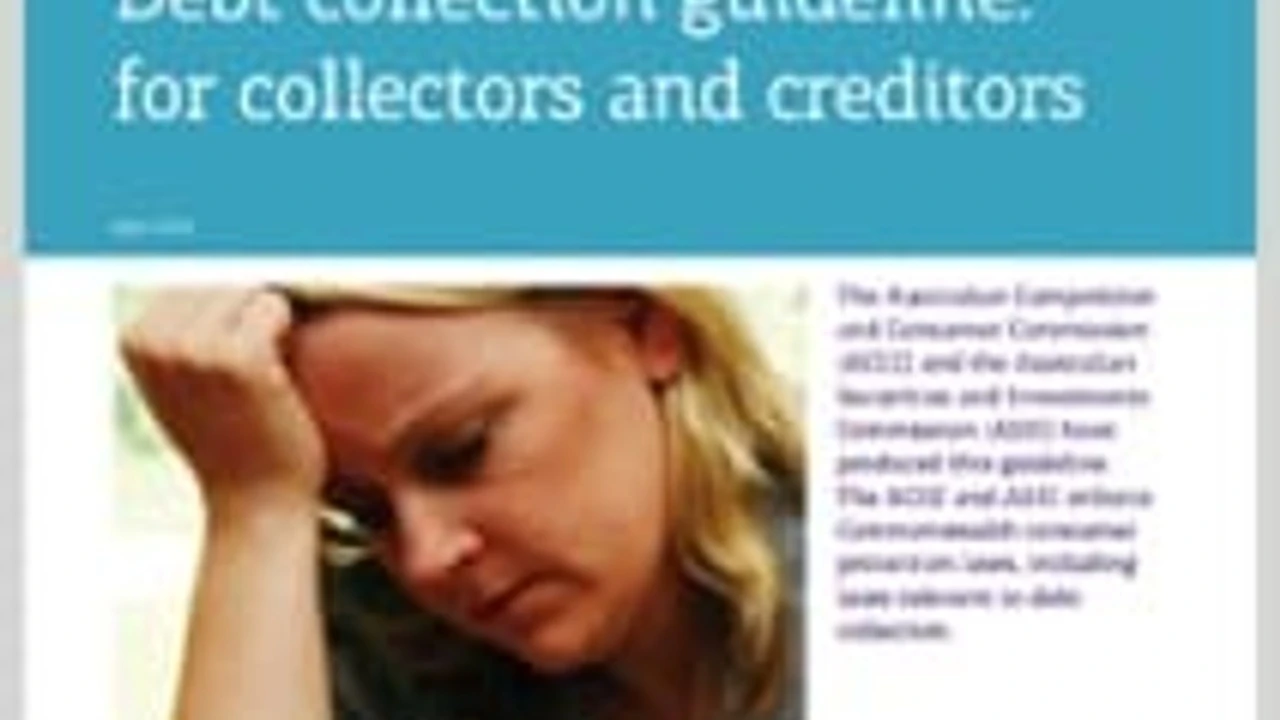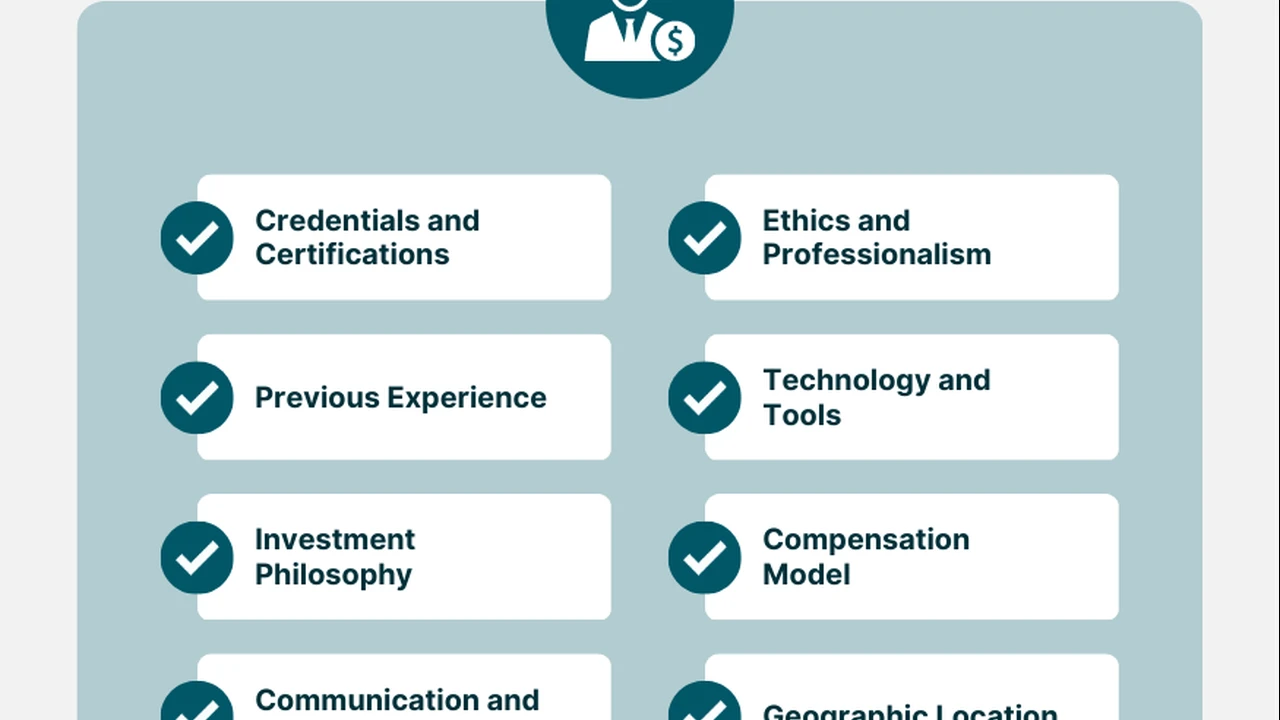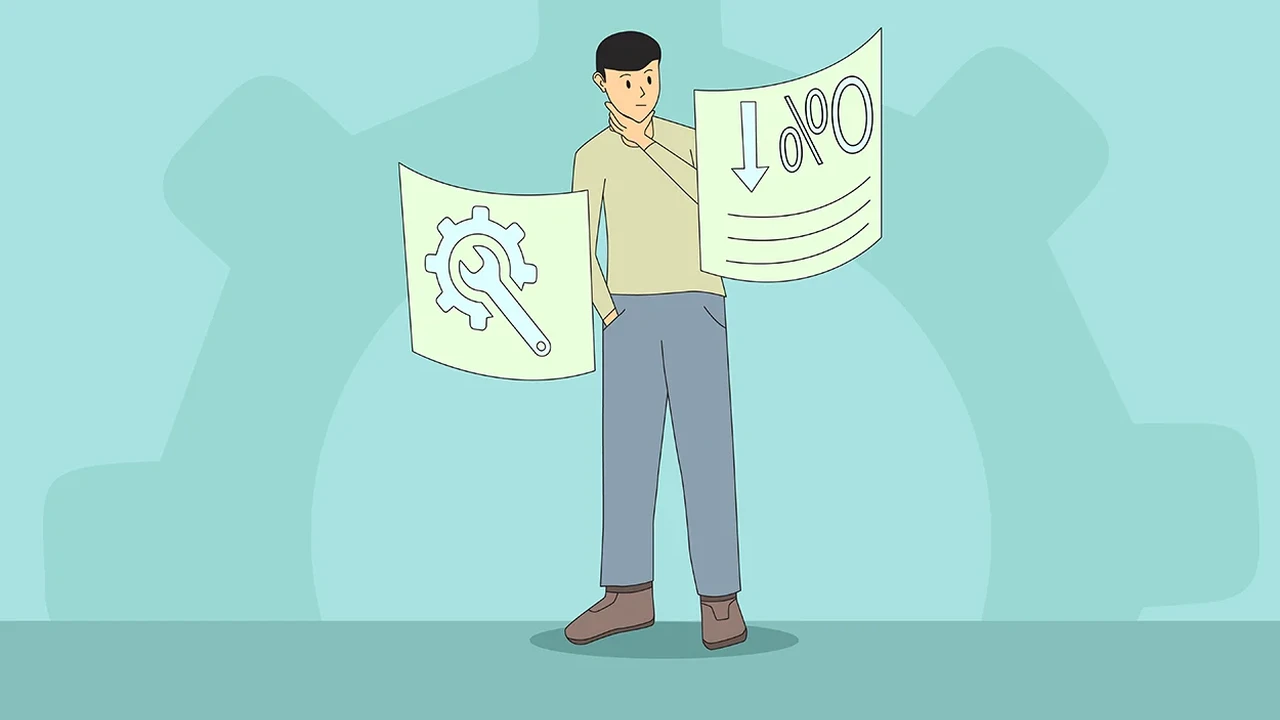Dealing with Aggressive Debt Collectors Your Rights
Know your rights when dealing with aggressive debt collectors and learn strategies to protect yourself.

Know your rights when dealing with aggressive debt collectors and learn strategies to protect yourself.
Hey there! Ever felt like you're being hounded by debt collectors? It's a pretty common and incredibly stressful situation. But here's the good news: you're not powerless. There are laws in place, especially in the US, to protect you from aggressive and unfair debt collection tactics. We're talking about the Fair Debt Collection Practices Act (FDCPA). This isn't just some obscure legal jargon; it's your shield against harassment. Knowing your rights under the FDCPA is the first and most crucial step in dealing with these folks. It empowers you to stand up for yourself and ensures you're treated fairly, even when you owe money.
So, what exactly does the FDCPA do? In a nutshell, it's a federal law that dictates what debt collectors can and cannot do when trying to collect a debt from you. It applies to third-party debt collectors, meaning companies that buy debts from original creditors or collect debts on behalf of others. It generally doesn't cover the original creditor themselves, though many states have their own laws that offer similar protections. The FDCPA aims to eliminate abusive practices in the collection of consumer debts and to promote fair debt collection. It's a big deal, and understanding its core tenets can save you a lot of grief.
Let's break down some of the key things debt collectors are prohibited from doing:
One of the most powerful tools you have under the FDCPA is the ability to control how and when debt collectors contact you. This isn't just about blocking their calls; it's about setting clear boundaries that they are legally obligated to respect.
This is your ultimate weapon. If you want a debt collector to stop contacting you, you can send them a written letter telling them to cease communication. Once they receive this letter, they can only contact you one more time to inform you that they will no longer contact you or that they intend to take specific action (like filing a lawsuit). It's crucial to send this letter via certified mail with a return receipt requested, so you have proof they received it. This doesn't make the debt go away, but it stops the harassment dead in its tracks.
As mentioned, you can tell them not to call you at work or during certain hours. If you tell them verbally, it's a good idea to follow up with a written letter to make it official and create a record. This ensures they can't claim ignorance later on.
Imagine getting a call about a debt you don't recognize or one that seems incorrect. The FDCPA gives you the right to verify the debt. This is super important because sometimes debt collectors pursue debts that are old, incorrect, or even fraudulent.
Within five days of their initial contact, a debt collector must send you a written notice containing specific information about the debt, including the amount owed, the name of the creditor, and a statement that you have 30 days to dispute the debt. If you dispute the debt in writing within this 30-day period, the debt collector must stop all collection efforts until they provide you with verification of the debt. This verification should include proof that you owe the debt and that they have the legal right to collect it. Again, send your dispute letter via certified mail.
If a debt collector violates the FDCPA, you have recourse. You don't just have to sit there and take it. Knowing your options can turn a frustrating situation into one where you regain control.
This cannot be stressed enough. Keep a detailed log of every interaction: date, time, name of the collector, company name, what was said, and any threats or abusive language used. Save voicemails, emails, and copies of all correspondence. This documentation will be invaluable if you decide to take action.
You can file a complaint with several agencies:
If the violations are severe or persistent, you might be able to sue the debt collector in state or federal court. If you win, you could recover actual damages (like lost wages due to stress or time off work), statutory damages up to $1,000, and even your attorney's fees and court costs. Many attorneys who specialize in FDCPA cases work on a contingency basis, meaning you don't pay unless they win. This is a powerful deterrent for abusive collectors.
Beyond knowing your rights, there are practical strategies you can employ to navigate these interactions more effectively.
It's easy to get emotional when dealing with debt collectors, but try to remain calm and professional. Don't yell, swear, or make threats. This will only escalate the situation and won't help your case. Remember, they are often trained to provoke reactions.
Even if you think you owe the debt, don't confirm it on the first call. Politely state that you need to verify the debt and request written documentation. This protects your rights under the FDCPA.
Be wary of giving out sensitive personal information like your bank account number, Social Security number, or credit card details over the phone, especially if you didn't initiate the call or are unsure of the caller's legitimacy. Scammers often pose as debt collectors.
If the debt is legitimate and you can afford to pay, you might be able to negotiate a payment plan or even settle the debt for a lower amount. Always get any agreement in writing before making a payment. Never agree to a verbal settlement.
Sometimes, the situation is too complex or overwhelming to handle on your own. That's when it's smart to bring in the pros.
Non-profit credit counseling agencies can help you understand your financial situation, create a budget, and explore debt management plans. They can also act as an intermediary between you and your creditors. Look for agencies accredited by the National Foundation for Credit Counseling (NFCC) or the Financial Counseling Association of America (FCAA).
If you believe your rights have been violated, a consumer attorney specializing in FDCPA cases can be your best ally. They know the law inside and out and can advise you on the best course of action, including filing a lawsuit if necessary. They can also help you draft cease and desist letters and debt validation requests correctly.
While some debt settlement companies can help reduce your debt, they often come with significant risks and fees. They might advise you to stop paying your creditors, which can damage your credit score and lead to lawsuits. If you consider this option, do extensive research and understand all the potential downsides.
Navigating debt collection can be made easier with the right tools and services. Here are a few categories and specific examples that can help you protect yourself and manage your debts more effectively.
These services help you keep an eye on your credit report for any suspicious activity or inaccuracies that debt collectors might be pursuing. They alert you to changes, which can be crucial for identifying fraudulent debts.
Keeping meticulous records is key when dealing with debt collectors. These tools can help you organize your correspondence.
When you need professional advice or representation, these services can be invaluable.
While not directly for dealing with collectors, these help you manage your finances to prevent future debt issues or to plan for payments.
Dealing with aggressive debt collectors can feel like a battle, but remember, you have rights and resources. The key is to be informed, organized, and proactive. Don't let fear or intimidation prevent you from asserting your legal protections. By understanding the FDCPA, documenting every interaction, and utilizing the right tools and professional help when needed, you can effectively manage these situations and protect your financial well-being. You're not alone in this, and there are plenty of ways to fight back fairly and legally. Stay strong, stay informed, and take control of your financial narrative.
Dealing with Aggressive Debt Collectors Your Rights and Strategies
Understanding Your Rights Against Aggressive Debt Collection Practices
Hey there! Ever felt like you're being hounded by debt collectors? It's a pretty common and incredibly stressful situation. But here's the good news: you're not powerless. There are laws in place, especially in the US, to protect you from aggressive and unfair debt collection tactics. We're talking about the Fair Debt Collection Practices Act (FDCPA). This isn't just some obscure legal jargon; it's your shield against harassment. Knowing your rights under the FDCPA is the first and most crucial step in dealing with these folks. It empowers you to stand up for yourself and ensures you're treated fairly, even when you owe money.
The Fair Debt Collection Practices Act FDCPA Your Legal Shield
So, what exactly does the FDCPA do? In a nutshell, it's a federal law that dictates what debt collectors can and cannot do when trying to collect a debt from you. It applies to third-party debt collectors, meaning companies that buy debts from original creditors or collect debts on behalf of others. It generally doesn't cover the original creditor themselves, though many states have their own laws that offer similar protections. The FDCPA aims to eliminate abusive practices in the collection of consumer debts and to promote fair debt collection. It's a big deal, and understanding its core tenets can save you a lot of grief.
What Debt Collectors Cannot Do Under FDCPA
Let's break down some of the key things debt collectors are prohibited from doing:
- Harassment and Abuse: This is a big one. They can't use threats of violence or harm, publish lists of consumers who refuse to pay debts, use obscene or profane language, or repeatedly call you to annoy or harass you. If they're calling you at 3 AM every day, that's harassment.
- False or Misleading Representations: They can't lie to you. This includes falsely implying they are attorneys or government representatives, misrepresenting the amount you owe, falsely stating that you'll be arrested if you don't pay, or threatening to seize your property unless they have a court order. They also can't say that papers they send you are legal forms if they aren't.
- Unfair Practices: This covers a broad range of actions. They can't try to collect interest, fees, or other charges not authorized by the original agreement or by law. They can't deposit a post-dated check prematurely. They also can't contact you by postcard or use any language or symbol on an envelope that indicates it's from a debt collector.
- Contacting You at Inconvenient Times or Places: Generally, they can't contact you before 8:00 a.m. or after 9:00 p.m. in your time zone, unless you agree to it. They also can't contact you at work if they know your employer prohibits such calls.
- Contacting Third Parties: They can't generally discuss your debt with anyone other than you, your attorney, or a credit reporting agency. They can contact third parties (like your employer, friends, or family) only to find out your location information, and they can't tell them you owe a debt.
Your Power to Control Communication with Debt Collectors
One of the most powerful tools you have under the FDCPA is the ability to control how and when debt collectors contact you. This isn't just about blocking their calls; it's about setting clear boundaries that they are legally obligated to respect.
Sending a Cease and Desist Letter
This is your ultimate weapon. If you want a debt collector to stop contacting you, you can send them a written letter telling them to cease communication. Once they receive this letter, they can only contact you one more time to inform you that they will no longer contact you or that they intend to take specific action (like filing a lawsuit). It's crucial to send this letter via certified mail with a return receipt requested, so you have proof they received it. This doesn't make the debt go away, but it stops the harassment dead in its tracks.
Restricting Contact Times and Locations
As mentioned, you can tell them not to call you at work or during certain hours. If you tell them verbally, it's a good idea to follow up with a written letter to make it official and create a record. This ensures they can't claim ignorance later on.
Verifying the Debt It's Your Right
Imagine getting a call about a debt you don't recognize or one that seems incorrect. The FDCPA gives you the right to verify the debt. This is super important because sometimes debt collectors pursue debts that are old, incorrect, or even fraudulent.
The 30-Day Validation Period
Within five days of their initial contact, a debt collector must send you a written notice containing specific information about the debt, including the amount owed, the name of the creditor, and a statement that you have 30 days to dispute the debt. If you dispute the debt in writing within this 30-day period, the debt collector must stop all collection efforts until they provide you with verification of the debt. This verification should include proof that you owe the debt and that they have the legal right to collect it. Again, send your dispute letter via certified mail.
What to Do When Debt Collectors Break the Rules
If a debt collector violates the FDCPA, you have recourse. You don't just have to sit there and take it. Knowing your options can turn a frustrating situation into one where you regain control.
Document Everything
This cannot be stressed enough. Keep a detailed log of every interaction: date, time, name of the collector, company name, what was said, and any threats or abusive language used. Save voicemails, emails, and copies of all correspondence. This documentation will be invaluable if you decide to take action.
File a Complaint
You can file a complaint with several agencies:
- Consumer Financial Protection Bureau (CFPB): This is a federal agency that protects consumers in the financial marketplace. They have a dedicated process for handling complaints about debt collection.
- Federal Trade Commission (FTC): The FTC also handles complaints about unfair and deceptive business practices, including those by debt collectors.
- Your State Attorney General's Office: Many states have their own consumer protection laws and departments that can investigate complaints against debt collectors.
Sue the Debt Collector
If the violations are severe or persistent, you might be able to sue the debt collector in state or federal court. If you win, you could recover actual damages (like lost wages due to stress or time off work), statutory damages up to $1,000, and even your attorney's fees and court costs. Many attorneys who specialize in FDCPA cases work on a contingency basis, meaning you don't pay unless they win. This is a powerful deterrent for abusive collectors.
Practical Strategies for Dealing with Debt Collectors
Beyond knowing your rights, there are practical strategies you can employ to navigate these interactions more effectively.
Stay Calm and Professional
It's easy to get emotional when dealing with debt collectors, but try to remain calm and professional. Don't yell, swear, or make threats. This will only escalate the situation and won't help your case. Remember, they are often trained to provoke reactions.
Never Admit to the Debt Immediately
Even if you think you owe the debt, don't confirm it on the first call. Politely state that you need to verify the debt and request written documentation. This protects your rights under the FDCPA.
Don't Give Out Personal Information
Be wary of giving out sensitive personal information like your bank account number, Social Security number, or credit card details over the phone, especially if you didn't initiate the call or are unsure of the caller's legitimacy. Scammers often pose as debt collectors.
Consider a Payment Plan or Settlement
If the debt is legitimate and you can afford to pay, you might be able to negotiate a payment plan or even settle the debt for a lower amount. Always get any agreement in writing before making a payment. Never agree to a verbal settlement.
When to Seek Professional Help
Sometimes, the situation is too complex or overwhelming to handle on your own. That's when it's smart to bring in the pros.
Credit Counseling Agencies
Non-profit credit counseling agencies can help you understand your financial situation, create a budget, and explore debt management plans. They can also act as an intermediary between you and your creditors. Look for agencies accredited by the National Foundation for Credit Counseling (NFCC) or the Financial Counseling Association of America (FCAA).
Consumer Attorneys Specializing in FDCPA
If you believe your rights have been violated, a consumer attorney specializing in FDCPA cases can be your best ally. They know the law inside and out and can advise you on the best course of action, including filing a lawsuit if necessary. They can also help you draft cease and desist letters and debt validation requests correctly.
Debt Settlement Companies (Use with Caution)
While some debt settlement companies can help reduce your debt, they often come with significant risks and fees. They might advise you to stop paying your creditors, which can damage your credit score and lead to lawsuits. If you consider this option, do extensive research and understand all the potential downsides.
Recommended Products and Services for Debt Management and Protection
Navigating debt collection can be made easier with the right tools and services. Here are a few categories and specific examples that can help you protect yourself and manage your debts more effectively.
1. Credit Monitoring Services
These services help you keep an eye on your credit report for any suspicious activity or inaccuracies that debt collectors might be pursuing. They alert you to changes, which can be crucial for identifying fraudulent debts.
- Identity Guard:
- Use Case: Comprehensive identity theft protection and credit monitoring. Alerts you to new accounts, credit inquiries, and changes to your credit report. Useful for spotting debts you don't recognize.
- Comparison: Offers robust identity theft insurance and dark web monitoring in addition to credit alerts. Often considered more comprehensive than basic credit monitoring.
- Pricing: Plans typically range from $9.99 to $29.99 per month, depending on the level of coverage (e.g., Value, Total, Premier). - Experian IdentityWorks:
- Use Case: Direct credit monitoring from one of the three major credit bureaus. Provides FICO score updates, credit report access, and alerts for suspicious activity. Great for staying on top of your Experian report.
- Comparison: Directly from Experian, offering accurate and timely data for that bureau. Often bundled with other Experian services.
- Pricing: Starts around $9.99 per month for basic plans, going up to $19.99 or more for premium features like 3-bureau monitoring. - Credit Karma:
- Use Case: Free credit monitoring and score updates (VantageScore). While not as comprehensive as paid services for identity theft, it's excellent for regular checks on your TransUnion and Equifax reports for free. You can spot new collection accounts quickly.
- Comparison: Free, which is a huge advantage. Provides good insights into your credit health and alerts, though it uses VantageScore, not FICO.
- Pricing: Free.
2. Document Management and Communication Tools
Keeping meticulous records is key when dealing with debt collectors. These tools can help you organize your correspondence.
- Evernote / OneNote:
- Use Case: Digital note-taking and document storage. You can scan and upload all letters from debt collectors, log phone calls, and keep track of dates and details. Easy to search and access.
- Comparison: Both offer robust organization features, cloud syncing, and cross-device access. Evernote has a more structured notebook system, while OneNote is more free-form.
- Pricing: Evernote has a free basic plan; paid plans start around $7.99 per month. OneNote is free with a Microsoft account. - Certified Mail Service (USPS):
- Use Case: Essential for sending cease and desist letters, debt validation requests, and any other formal communication. Provides proof of mailing and proof of delivery.
- Comparison: The gold standard for legal correspondence. No digital equivalent offers the same legal weight.
- Pricing: Varies, typically around $3.75 for certified mail plus postage, with an additional fee for a return receipt.
3. Legal Assistance and Consultation Services
When you need professional advice or representation, these services can be invaluable.
- National Association of Consumer Advocates (NACA):
- Use Case: A non-profit organization that helps consumers find qualified attorneys specializing in consumer law, including FDCPA violations. Their directory can connect you with lawyers who offer free consultations.
- Comparison: Focuses specifically on consumer protection, ensuring you find an attorney with relevant expertise.
- Pricing: Finding an attorney through their directory is free; attorney fees vary (often contingency-based for FDCPA cases). - LegalZoom / Rocket Lawyer:
- Use Case: Online legal service platforms that offer legal document creation (like cease and desist letter templates) and access to attorneys for consultations. Useful for drafting initial letters or getting quick advice.
- Comparison: More affordable than traditional law firms for basic needs. LegalZoom is strong on document creation, Rocket Lawyer offers more direct attorney access.
- Pricing: LegalZoom plans start around $39.99 per month for legal advice; Rocket Lawyer offers a free trial, then around $39.99 per month.
4. Budgeting and Debt Management Apps
While not directly for dealing with collectors, these help you manage your finances to prevent future debt issues or to plan for payments.
- You Need A Budget (YNAB):
- Use Case: A powerful budgeting app that helps you assign every dollar a job, making you more aware of your spending and helping you prioritize debt payments. Excellent for getting your finances in order.
- Comparison: Known for its strict 'zero-based budgeting' philosophy, which is highly effective for debt reduction. Has a steeper learning curve than some other apps but offers great results.
- Pricing: Around $14.99 per month or $99 per year after a free trial. - Undebt.it:
- Use Case: A free online tool that helps you create a debt payoff plan using methods like debt snowball or debt avalanche. It visualizes your progress and helps you stay motivated.
- Comparison: Free and highly customizable for debt payoff strategies. Doesn't offer full budgeting features but excels at debt tracking.
- Pricing: Free.
Final Thoughts on Protecting Yourself from Aggressive Debt Collectors
Dealing with aggressive debt collectors can feel like a battle, but remember, you have rights and resources. The key is to be informed, organized, and proactive. Don't let fear or intimidation prevent you from asserting your legal protections. By understanding the FDCPA, documenting every interaction, and utilizing the right tools and professional help when needed, you can effectively manage these situations and protect your financial well-being. You're not alone in this, and there are plenty of ways to fight back fairly and legally. Stay strong, stay informed, and take control of your financial narrative.
:max_bytes(150000):strip_icc()/277019-baked-pork-chops-with-cream-of-mushroom-soup-DDMFS-beauty-4x3-BG-7505-5762b731cf30447d9cbbbbbf387beafa.jpg)






